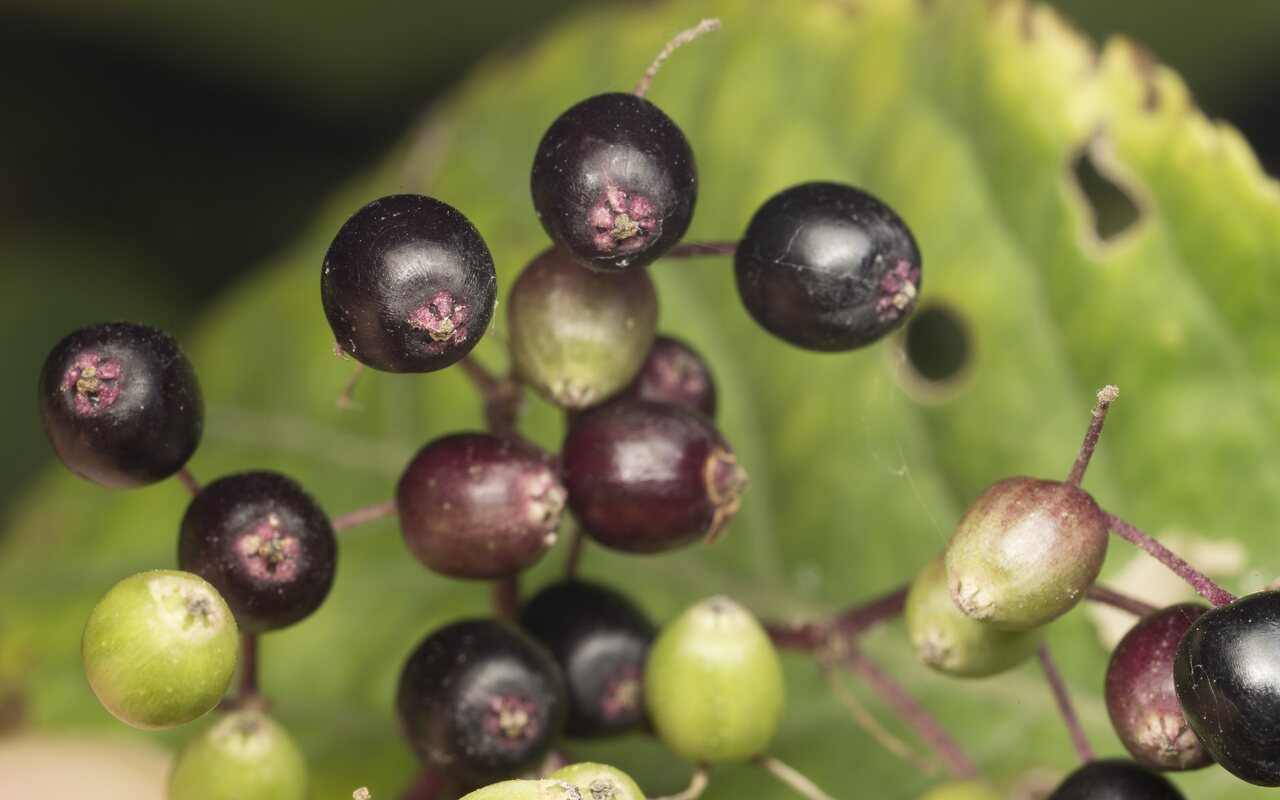
Sambucus nigra · juoduogis šeivamedis
- elder, elderberry, black elder, European elder, European black elderberry
- Schwarzer Holunder
- juoduogis šeivamedis
- melnais plūškoks
- bez czarny
en.wikipedia.org/wiki/Sambucus_nigra The plant is widely grown as an ornamental shrub or small tree. Both the flowers and the berries have a long tradition of culinary use, primarily for cordial and wine.
Although elderberry is commonly used in dietary supplements and traditional medicine, there is no scientific evidence that it provides any benefit for maintaining health or treating diseases.
Elderberry is a deciduous shrub or small tree growing to 6 metres tall and wide. The leaves are arranged in opposite pairs, 10–30 cm long, pinnate with five to seven (rarely nine) leaflets, the leaflets 5–12 cm long and 3–5 cm broad, with a serrated margin. The young stems are hollow.
The hermaphroditic flowers have five stamens, which are borne in large, flat corymbs 10–25 cm in diameter in late spring to mid-summer. The individual flowers are ivory white, 5–6 mm in diameter, with five petals, and are pollinated by flies. The fruit is a glossy, dark purple to black berry 3–5 mm diameter, produced in drooping clusters in late autumn. The dark color of elderberry fruit occurs from its rich phenolic content, particularly from anthocyanins.
Uogos valgomos, neįdomaus skonio, sėklos silpnai nuodingos. Likusi augalo dalis nuodinga, išskyrus žiedus.
‥
0 comments
Add a comment